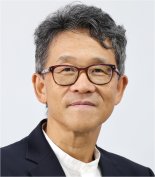[Lee Seok-woo's Deliberation] Expanding Survival Space Amid Alliance Anxiety
- Input
- 2025-08-26 18:16:13
- Updated
- 2025-08-26 18:16:13

For quite some time, I have heard from Chinese officials and scholars that they "suffered setbacks while cooperating with Korea." They claimed that while they were strengthening cooperation with Korea to deter North Korea's nuclear development and provocations, adopting a hardline stance against North Korea, and implementing UN sanctions against North Korea, Korea suddenly shifted its position to a conciliatory policy towards North Korea, changing its stance. Japan also attacked us with similar logic during the Moon Jae-in administration. When raising issues with the comfort women agreement, they criticized, "Korea is moving the goalposts."
During the US-Korea summit in Washington on the 25th (local time), President Trump said, "Japan wants to move forward. However, Korea was very obsessed with that issue," adding, "I had some difficulty getting the two countries to work together because Korea was still thinking about the comfort women." Such remarks, which support Japan's claims, show one aspect of this issue as perceived by the international community.
At the Korea-Japan summit in Tokyo on the 23rd, Prime Minister Ishiba Shigeru responded positively to President Lee Jae-myung, who emphasized expanding practical cooperation while setting aside historical issues, by mentioning the 1998 'Joint Declaration on a New Korea-Japan Partnership for the 21st Century' and stating, "We will inherit the historical perceptions of past cabinets." The two countries focused on strengthening Korea-US-Japan cooperation through bilateral cooperation. The media in both countries assessed that changes in the security order and pressure from the alliance (the US) led Korea and Japan to cooperate. The geopolitical changes and turmoil in Northeast Asia were significant enough to bring the two countries closer.
The Korea-US summit held after the start of a stable Korea-Japan relationship showed our situation amid turbulence. The summit, which praised Trump as a 'peacemaker,' concluded by confirming existing agreements in principle and concealing cracks and disagreements between the two sides. However, fierce calculations and negotiations to secure national interests, such as the tariff agreement without a written agreement, the $350 billion investment in the US, and the modernization of the alliance, await.
Just before the summit, Trump posted on social media, "What is happening in Korea? It looks like a purge or revolution," "We cannot accept it, and we cannot do business there," shaking us. The astronomical 'bill' and pressure tactics, even threatening to cancel the summit, show that we are entering a world entirely different from the previous 'post-war 80 years.' The value alliance has disappeared, and in a changed empire, alliances are pressured in transactional relationships, with the calculation that "the alliance has exploited the US more than adversaries." At the root of this change are workers who have lost their self-esteem, filled with a sense of deprivation as victims of globalization, and angry whites, forming a massive support base that supports America First and high tariffs, becoming a constant in US politics. This is why the opinion "Even if Trump goes, Trumpism will remain" has emerged.
It is now paradoxically more urgent to gain the favor and trust of allies and partner countries, as it is difficult to expect goodwill and trust from the other side. In strategic competition with China, we need to present more cooperative projects and cooperation spaces to the US, which is focused on reviving manufacturing industries such as shipbuilding and semiconductors. Expanding cooperation and broadening the dense network of cooperation is the path to survival that enhances our presence by mitigating the asymmetry of interdependence. As we enter an unfamiliar era of survival of the fittest, where muscular bullies roam, finding common ground with partner countries and expanding diplomatic activity space becomes more essential survival assets. Our future depends on how we fulfill these tasks. We are standing at the starting point again.
june@fnnews.com